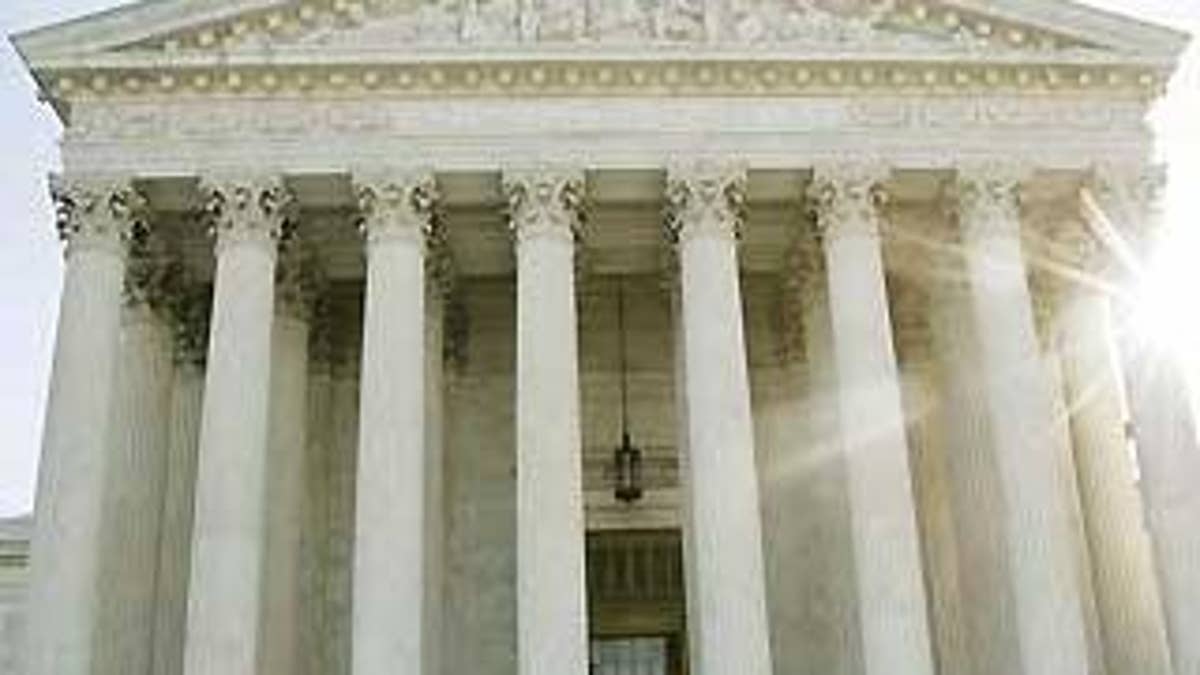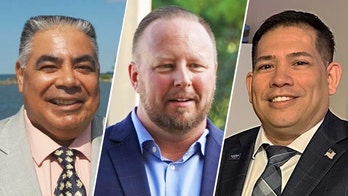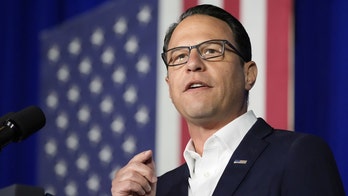
Not white. Not male. Not a career judge.
Those were just some of the criteria senators outlined Sunday as they discussed their hopes for the next Supreme Court justice.
With Justice David Souter retiring this summer, Democrats in particular said the vacancy is an opportunity for President Obama to diversify the high court -- not just by choosing a woman or minority justice, but a candidate with a resume that includes something other than years on the bench.
They seemed to echo Obama's own stated preference for a nominee who demonstrates "empathy" for ordinary people and relies on more than "abstract legal theory" in making decisions.
"I would like to see more people from outside the judicial monastery, somebody who has had some real-life experience, not just as a judge," Sen. Patrick Leahy, D-Vt., said on ABC's "This Week."
Sen. Arlen Specter, who this past week announced he was switching his party affiliation from Republican to Democrat, said the next Supreme Court justice need not be a judge, or even a lawyer.
He told NBC's "Meet the Press" that he hopes Obama will bypass the federal appeals court, historically the breeding ground for Supreme Court nominees, in his search. He said the president could choose a "statesman or stateswoman" for the position instead.
"I would hope that he would look beyond the Circuit Courts of Appeals which now populates the Supreme Court and pick someone with a greater world experience and diversity," Specter said, noting that the sitting justices have "lives and experiences which are all very similar."
"It would be good to get people who know something besides wearing a black robe," Specter said.
He said women, Hispanics and African-Americans need to be better represented on the high court.
Leahy, chairman of the Senate Judiciary Committee, also said the court needs more women and minorities.
Obama said Friday he wants Souter's successor seated by the start of the next court term in October. He apparently has already tossed around names of possible nominees with his advisers -- analysts say he'll probably look for a woman, since Justice Ruth Bader Ginsburg is the only woman on the high court.
His pick would not shift the ideological balance of the court, since Souter mostly voted with the court's liberal wing. This raises the question of whether Obama would reserve his political capital for another day and hold off on sending to the Senate a controversial nominee.
Conservatives on Sunday expressed resignation to the likelihood that Obama would pick a liberal nominee, but warned that the president should not overstep.
Sen. Orrin Hatch, R-Utah, said he worries the president is sending signals that he wants an activist on the court.
"He's also said that a judge has to be a person of empathy. What does that mean? Usually that's a code word for an activist judge," Hatch said on "This Week." "But he also said that he's going to select judges on the basis of their personal politics, their personal feelings, their personal preferences. Now, you know, those are all code words for an activist judge, who is going to, you know, be partisan on the bench."
Hatch said he hopes Obama chooses "somebody of great dimension."
"We all know he's going to pick a more liberal justice. Their side will make sure that it's a pro-abortion justice. I don't think anybody has any illusions about that," Hatch said. "The question is, are they qualified?"
Hatch said Obama will have a "slam dunk" if he picks somebody "center-left like Souter."
"I have no illusions about President Obama appointing a conservative like Alito or Roberts and so forth," Sen. Richard Shelby, R-Ala., said on CNN's "State of the Union." "But if he will appoint a pragmatist, someone who is not an ideologue, that someone is not just going to light all the lightbulbs in America on the left, I think that would be good for the country. ... I hope he is going to be careful in this appointment."
Sen. John Ensign, R-Nev., also warned against picking a so-called activist judge.
"Our courts have been turning the legislative branch at the state level as well as at the federal level upside-down because too many of them actually want to become legislators instead of just justices," he told "FOX News Sunday."




